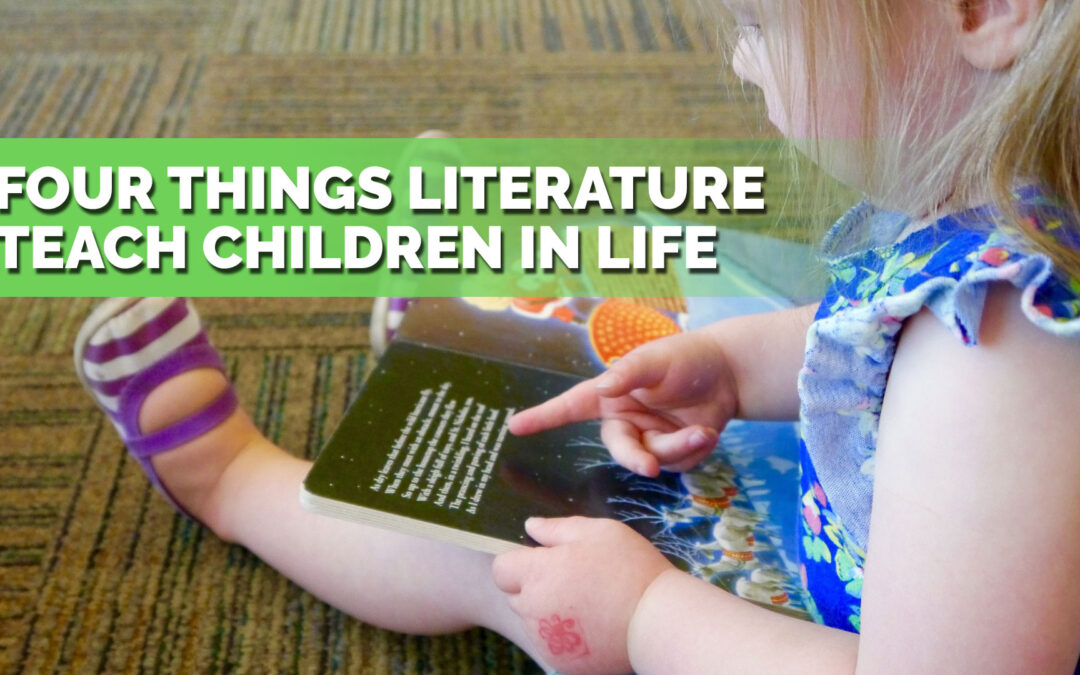Four Things Literature Teach Children in Life
Everyone’s first reading experience is often about fairytales, bedtime stories, and chapter books introduced by parents when we were children. Although they may seem simplistic, these stories have greatly helped each one of us in how we see, interpret, and interact with the world. It may not be evident, but storybooks have a place in any person’s life. The early years are a time of joy and great learning for young children. They may view literature as pleasurable and rewarding, but soon children will realize that literature has distilled abundant enlightenment that enriches children’s lives.
Sure, there is plenty to be learned from personal experiences. But sometimes, the best wisdom comes from the less obvious source: the children’s books on your bookshelf. They are filled with the most important, well said, and beautifully told advice. Children’s literature has lent to us, especially to children, lasting and timeless knowledge that made us more grateful for our life. These books have helped many to see the world a little differently. Thus, this article will identify the greatest knowledge that children’s literature teaches the world’s future, the young children.
Opens Eyes to True Human Experience
Literature opens a path for children to explore a world, a different yet similar world, in the safest and most realistic way. This grants children a playing field to project themselves into the worlds they may have yet to experience in real life. Children can take on as the character and live their lives. As the story unfolds, they find themselves experiencing the said character’s life. Therefore, harboring a similar feeling with the character, deepening the understanding of human experience. Despite it being a fictional world, being exposed to stories builds a child’s ability to empathize with other people in real life. A further understanding of existential is fostered due to the deeper sense of compassion. And in a fairytale-like way, the child will discover themselves forming an intangible bond to the people around them.
Deeper Understanding of Self
Besides understanding others, literature presents a way for children to understand themselves better. Being young and innocent, children have no idea who they are or who they want to be. They are still learning, after all. Literature can serve children by helping them better understand themselves. Through the book character’s thoughts, words, and actions, the child can form a perception of his or her own character, personality, and values. The child’s modes of behavior and value structure will continuously change, modify, and extend until they build themselves. When children assume the character’s role, they become more aware of the nature of behavior and consequences.
The Song Of Solomon The Snail is a great book that offers a complex situation that will allow young readers to see parts of themselves. They will compare story characters to themselves, put themselves in the character’s shoes, relate to them to a great degree. Therefore, discovering traits about themselves that they would never have found out if not for literature.
Discover the Complexity in the Simple
Children’s literature often uses metaphorical narratives to make it enjoyable for a child to read. Many children’s authors adopt this to make stories new and exciting, adding magic to the young ones’ lives. Take for example, The Little Prince, a single flower that contributed to the interstellar journey. This type of story teaches children to find the complexity in the things that appears to be simple to create something beautiful. These stories draw attention to the little details in the world, exploring how big they can be when you put your mind to them. In essence, this teaches children to find the intricacies present in everyday life and give new meaning.
Inspires to Tell a Story
Books are proof that simple words can carry an important message. They are, after all, the primary teachers to children. Children’s literature presents to children that they have the freedom to let things work out in their own story. This suggests that they have control to make their story have a happily ever after, just like in the stories. By tapping into literature, children are offered a chance to make their life’s story something that can be meaningful. Furthermore, these tales will be ingrained in their lives, retelling them to themselves and, someday, to their children.
It is a fact that when children grow, they tend to leave the children’s books on the shelves to gather dust. Time will come, though, that the children will reach for them and read them once more. For that reason, you may want to revisit your old-time favorites and rediscover the lessons they taught. Children’s books have lots to teach no matter what stage you are in life. Take and treasure these lessons because they will always apply to life.

Recent Comments